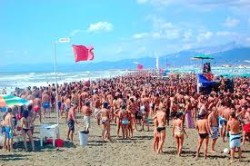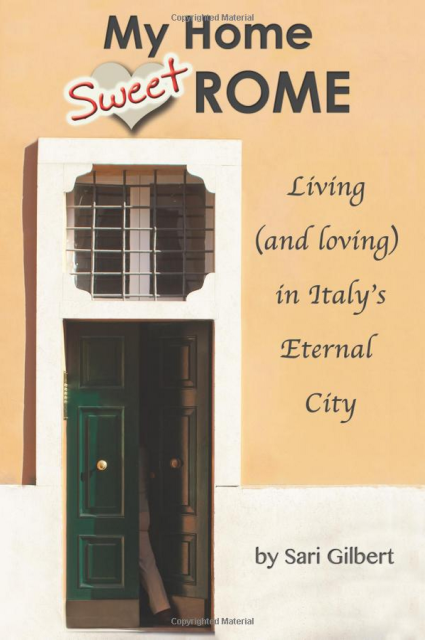Italians gearing up for the Ferragosto holiday
 I’m about to rush off to the Coop to buy some chicken as my contribution to a Ferragosto barbecue tomorrow in the countryside near lake Bolsena where I am spending most of my summer. Ferragosto is the biggest Italian summer holiday, actually the only one, and the week preceding it is the week in which, as tradition dictates, the majority of Italians still take their summer holiday. In big cities such as Rome, the majority of businesses are closed this week although not restaurants, cafés or even monuments since the hordes of tourists must, after all, be catered to. Hundreds of thousands are at the beach. Other tens of thousands of people will be spending the day in the mountains. And still others will be celebrating in small towns where they or their families, or some relative, have a second home or even live. Food, as usual in Italy, is of major importance, although there are no special dishes associated with the holiday. And the day usually ends up with fireworks. Here in this area the best ones are supposed to be accross the lake at Capodimonte so the idea is to go out in someone’s boat and to see them from the water.
I’m about to rush off to the Coop to buy some chicken as my contribution to a Ferragosto barbecue tomorrow in the countryside near lake Bolsena where I am spending most of my summer. Ferragosto is the biggest Italian summer holiday, actually the only one, and the week preceding it is the week in which, as tradition dictates, the majority of Italians still take their summer holiday. In big cities such as Rome, the majority of businesses are closed this week although not restaurants, cafés or even monuments since the hordes of tourists must, after all, be catered to. Hundreds of thousands are at the beach. Other tens of thousands of people will be spending the day in the mountains. And still others will be celebrating in small towns where they or their families, or some relative, have a second home or even live. Food, as usual in Italy, is of major importance, although there are no special dishes associated with the holiday. And the day usually ends up with fireworks. Here in this area the best ones are supposed to be accross the lake at Capodimonte so the idea is to go out in someone’s boat and to see them from the water.
In Bolsena, during the week, almost everything is open because the population of the town, like that of myriad others, swells enormously during the summer. The shops will even be open tomorrow morning. But then everyone will be out celebrating even if they really don’t know what it is they are celebrating, except as a general metaphor for pleasure – sun, sea, relaxation, meals with friends and unadulterated leisure. It is also the time that animals and elderly people often get left alone, as you may know if you have had the pleasure of seeing the charming 2008 Italian film, “Mid-August Lunch” (Pranzo di Ferragosto), in which a somewhat down in the dumps middle-aged Roman ends up cooking meals over the holiday weekend for both his elderly mother and the mothers of several other people who want to enjoy the holiday without having the burden of an aging parent.
The term Ferragosto is derived from the Latin expression Feriae Augusti (the holidays ordered by the Emperor Augustus for the first time in 18 BC during the month that took his name). There were pre-existing holidays in ancient Rome at the same time of the year- the Augustali – to celebrate summer harvests and to rest up from all the hard work in the fields. And in pagan times, this holiday also included the honoring of gods—in particular Diana—and the cycle of fertility and ripening.
It also has a significance for the Roman Catholic religion which marks it as the day of the Assumption of the Virgin Mary into Heaven, the dogma holding that Virgin Mary “having completed the course of her earthly life, was assumed body and soul into heavenly glory.” But you won’t find practically anyone who is dedicating tomorrow’s holiday to her.


